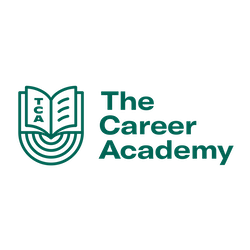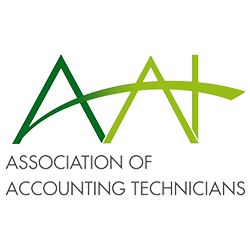5 of the Most Common Interview Questions and How to Answer Them

The best advice when it comes to interviews? Always go in prepared. Take a look at some of the most common (and hard to answer) interview questions going around and start working out how you can answer them best to make you stand out from the competition and secure that dream job.
1. “Why should we hire you?”
This question, while being one of the most daunting, is also one of the most common questions you can expect to be asked. It’s a perfect question for recruiters to suss you out and get a feel for how you respond to a question that is otherwise very hard to answer. It’s important to find the balance between stating your strengths and abilities, whilst not coming off as too over-confident.
If you don’t have much experience in the area, don’t be afraid to explain some of the ways you’ve managed to obtain the relevant skills, be it through coaching a local team to develop leadership and communication skills or if you’ve taken part in a volunteer position and have experience through that in customer service.
Consider questions such as ‘What do I have that’s going to benefit the company?’ or ‘Why am I perfect for this position, why did I apply for it?’ to get a feel for how you should answer the question.
Above all, try to discuss the skills and knowledge that are relevant to the position, including the skills you’ve gained through study or previous positions. Showing passion, ambition and a need to advance and progress are all signs recruiters look out for in responses so try to keep these in mind.
2. “What do you consider to be your greatest weakness?”
This is a hard question to answer and is known to be the one that stumps the most interviewees. After all, the purpose of the interview is to showcase all of the strengths you have, so how do you do that and discuss your weaknesses at the same time?
This question is usually a common one because it shows a recruiter that you can acknowledge areas that you aren’t strong in. It can showcase your ability to be analytical as well as how easily you can take criticism and be manageable.
The best way to answer this is in two steps.
The first; find a ‘weakness’ that is manageable and won’t have a detrimental impact on your position if you get it. For instance, if you’re applying for a position as a veterinary nurse, don’t mention the fact that you hate cats. It may seem straightforward, but you’d be surprised how many people still manage to get this question wrong.
The second part of answering this question; explain the steps you’re taking to resolve it. For me, I typically discuss how I’m not a fan of public speaking. As a blogger and marketer, the chances of public speaking aren’t a common part of the job, so struggling with this doesn’t impact my ability to work for the most part. I always try to mention how to resolve this fear, I try to take part in public speaking opportunities when they arise to familiarise myself with it and become more comfortable.
The phrasing of this question is also very important. Instead of saying; ‘I’m not very good with time management and organisation’, saying something along the lines of; ‘I can sometimes take on too many tasks at once, but through keeping a plan and prioritising my tasks, I’m able to manage this effectively.’ See how the second answer makes poor time management sound like you’re very willing to keep busy and work hard? It’s a weakness that can be interpreted as a strength too.
3. “So, tell me about yourself?”
This question can sometimes sound too easy but be wary, it’s a fantastic chance for the interviewer to see how well you can communicate, as well as the type of personality you might have.
Usually the ice breaker of the interview, the question is meant to help put you at ease however it’s still very important to go about answering it well. Avoid anything that may be seen negatively, such as discussing how you like to go on impulsive week-long getaways.
Instead, try to find aspects of your life that correlate to your position, such as explaining how you like to take initiative through volunteering at local sports clubs or events, of through a leadership position at University or high school which is perfect if you’re applying for a management position.
As for personal interests, if you choose to mention these, make sure they aren’t something such as ‘being a party animal’. Instead discuss a love for sports, reading, movies or cooking. Harmless interests that don’t impact a job whatsoever.
4. “What is it that you’re looking for in this position?”
One of the main things that recruiters look for in a job candidate is self-motivation and a willingness to advance in experience and knowledge. If you get asked this question, you’ve hit the jackpot.
Not only have you been given the chance to showcase this passion and drive, but you have also been allowed to explain why the company is perfect for you and what it is about them that sparked your need to apply.
If you can flatter the ego of the company just a little bit, it can go a long way. After all, if you think highly of the company you work for, you’re more likely to work hard towards it. If you can, try to showcase that you’ve done some research on the organisation, this can pay off as it highlights your commitment and motivation even more.
Start off by explaining how the role can help you develop your capabilities, and how they are perfect for mentoring and assisting you to become more skilled and experienced in the field.
Sometimes this question can lead to a follow-up, usually ‘Where do you See Yourself in 5 years?’ This gives the recruiter the chance to gauge your commitment to progress as well as show them that you’re keen to not only create goals but that you plan on following them through.
5. “Do you have any questions for us?”
No matter what the career, always say yes to this question. Even if you just have one generic question, showing your inquisitive nature and that you’re genuinely interested in the company is very important. Saying no can give the interviewer the feeling that you’re not interested.
Try to list out some potential questions you can ask, because 99.9% of the time, this will come up at the end of an interview. Again, don’t forget that during this stage, the interviewer is trying to find out as much about you as possible, and you need to show the enthusiasm to find out about them too.
Some popular topics to ask include inquiring about their goals in terms of progressing the business, the corporate culture or their mission as well as asking them directly what they expect from you. You can also ask about other aspects of the job, such as tasks that you’ll be performing, desired qualities as well as the department you’d be working in.
Remember, it’s important to sell your capabilities as much as possible, but the ultimate goal is to show that you’re a perfect fit for the company. You must practice before an interview, not only to relieve the nerves of not being prepared, but to also show that you’re professional, determined and above all else, the perfect candidate for the position.
Good Luck!
Browse Results
Diploma in Management & Team Leadership
Show you’re management material. Get an accredited Diploma in Management to prove your competency! While many managers are promoted because of their excellent personal performance, this change in role requires the development of new skills to ach…

Administration Pathway Program – Business Administration
Give your admin career a real boost. It’s one of the most highly awarded Administration courses that you could take. This program is for those working in or seeking a Business Administration role. You’ll complete the Certificate in Business Administrat…


Diploma in Child & Youth Counselling
How to change people’s lives for the better. This is a course where you can make a world of difference for children and young people. It’s a fascinating and highly detailed course where you’ll learn about theories of childhood development that include…

Certificate in Accounting
This is a course that ticks all the boxes. The Career Academy Certificate in Accounting will provide you with all the necessary skills to work in an accounting environment. There’s no prior experience needed to do the course. And once you finish, you’l…

Accounting Pathway Program
Become a Qualified Accounting Technician and member of AAT! Fast track your accounting career with The Career Academy. This Program is unique to The Career Academy and specifically designed for those working or who have worked in an entry through to in…


Psychology & Counselling Diploma
Understand the human mind and the counselling process with this internationally recognised qualification. You’ll learn the theory behind the skills and techniques used to successfully help people work through their problems and issues with counselling….

Certificate in Bookkeeping
Learn to balance the books with our accredited course. You’ll be able to prepare GST returns, liaise with the Inland Revenue on behalf of a taxpayer and keep business accounts, as well as learning to analyse and interpret a profit and loss statem…


Certificate in Business Administration
Get that job or promotion with this certificate which is supported by the AdmiNZ. This online course will help you gain practical skills to prepare you for an administration role. The course will give you the immediate knowledge to work confidently in…

Accounts Administration & Payroll Certificate plus Xero and MYOB
Up your practical knowledge and stand out from the crowd with our intermediate online course. You’ll gain skills in accounting, GST, Xero, payroll, Microsoft Excel and much more….


Accounting Diploma
Once you qualify, your job prospects will soar. If you’re eager to enhance your accounting skills, and pursue a career in accounting, finance or business, then this course is a must. It’s an advanced qualification that builds on the practical accountin…


Import and Export Advanced Course
The International Trade (Import – Export) course gives you skills that you can put to immediate use. Whether you are expanding your business into the international market, starting a business or simply looking at working for an international trade comp…

Life Coaching Course
This course provides an opportunity to interact with and learn from very successful, highly qualified and experienced professionals. It also allows you to enter a respected and fast growing professions dedicated to making difference in peoples’ lives….

Catering and Cooking Course
Become a caterer and learn essential cooking skills. This course provides an opportunity to interact with and learn from very successful, highly qualified and experienced professionals and master chefs. It also allows you to enter a profession which wi…

Nursing Assistant Course
The field of Nursing & Patient Care Assisting is a rewarding career for those who wish to work in a profession that gives back to those who need it most….

Dental Assistant Course
Become a Dental Assistant. The course provides an opportunity to interact with and learn from very successful, highly qualified and experienced professionals. It also assists you in pursuing a stable and secure career as a dental assistant….

TESOL Course
There are certain skills you need to become a successful “Teacher of English to Speakers of Other Languages” (TESOL). Also commonly known by the acronym’s TEFL and TESL which are used interchangeably. The ICI TESOL Program helps you learn the required…

Paralegal Secretarial Advanced Course
The ICI paralegal course has been designed in conjunction with government and industry representatives and helps you learn the skills you need to succeed within the field of law quickly and conveniently. Our program is designed for those who seek to en…

Mediation Course
The mediation and conflict resolution profession is an incredibly rewarding and fulfilling profession….

Forensics Course
The field of forensics science is a fascinating area to study….

Hospitality Management Advanced Course
The ICI hospitality and hotel program has been designed in conjunction with industry leaders and helps you learn the skills you need to succeed in within the industry quickly and conveniently….

